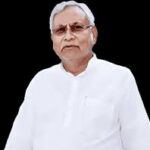Biography Mohammad Hamid Ansari: A Distinguished Statesman with Lasting Impact on India’s Political Landscape
Biography Mohammad Hamid Ansari: Mohammad Hamid Ansari, the 12th Vice President of India, stands as a stalwart in Indian politics, known for his erudition, diplomacy, and service to the nation. With a career spanning decades in public service, diplomacy, and education, Ansari’s journey is a reflection of India’s evolving political and diplomatic paradigms.
Biography Mohammad Hamid Ansari Early Life and Education
Born on April 1, 1937, in Calcutta (now Kolkata), Mohammad Hamid Ansari hailed from a distinguished family. His father, Ghulam Hassan Ansari, was a prominent civil servant, and his family had a deep-rooted connection with education and governance. Hamid Ansari was schooled in some of the finest institutions, including the prestigious Aligarh Muslim University (AMU), where he completed his Bachelor’s degree in Arts. He later pursued a Master’s degree in Political Science from the same university, showing an early passion for politics and diplomacy.
In 1961, Ansari went on to pursue further studies in the United States, where he attended the University of Denver for his Master’s in International Affairs. His academic background laid a solid foundation for his later diplomatic career.
Biography Mohammad Hamid Ansari Diplomatic Career
Ansari’s career in the Indian Foreign Service (IFS) began in 1961 when he joined the prestigious corps of diplomats. Over the next few decades, he served in various key diplomatic positions, both within India and abroad. His early postings took him to various countries, including Saudi Arabia, Afghanistan, and the UAE. These international experiences helped him refine his skills in diplomacy and communication.
One of his most notable diplomatic assignments was his role as the Ambassador to the United Arab Emirates (UAE) and later as India’s Ambassador to Afghanistan. During these assignments, Ansari played a crucial role in strengthening India’s relations with these countries and advancing India’s interests in the Middle East and Central Asia.
In the 1990s, he also served as the Permanent Representative of India to the United Nations, a position that further solidified his place in international diplomacy. At the UN, Ansari represented India on various crucial issues, including nuclear disarmament and regional security.
Biography Mohammad Hamid Ansari Vice Presidency of India
In 2007, Mohammad Hamid Ansari was elected as the 12th Vice President of India, a role that he held for two consecutive terms until 2017. His tenure as Vice President was marked by a deep commitment to upholding the democratic values of India, which he did with unwavering dedication and impartiality.
As the Chairman of the Rajya Sabha (Council of States), Ansari played a pivotal role in ensuring the smooth functioning of one of India’s most important legislative bodies. He was highly regarded for his ability to manage debates with fairness and respect for all members, even during contentious discussions. His leadership in the Rajya Sabha was instrumental in ensuring that the voice of the opposition was also heard, contributing to a more inclusive and transparent process.
Biography Mohammad Hamid Ansari Key Contributions and Legacy
One of the most defining characteristics of Hamid Ansari’s political and diplomatic career has been his commitment to democracy, secularism, and social justice. He has consistently advocated for the protection of minority rights, social inclusivity, and secular ideals—principles that form the backbone of the Indian Constitution.
Throughout his tenure as Vice President, Ansari also focused on strengthening India’s democratic institutions. His insights into the working of the Rajya Sabha, the Parliament, and the judiciary have contributed to shaping a better understanding of India’s democratic fabric.
Additionally, Ansari has been a strong proponent of education and social reforms. His academic background and his role as a former professor of political science at AMU gave him a unique perspective on the importance of education in shaping a better society. During his tenure as Vice President, he often spoke on the significance of education in nation-building and promoting social harmony.
Biography Mohammad Hamid Ansari Social Contributions
Apart from his political career, Hamid Ansari has also been involved in various philanthropic activities. As a champion of minority rights and social justice, Ansari worked with various organizations to ensure the empowerment of underrepresented groups, particularly in education and employment. He has also been a strong advocate of women’s rights and their inclusion in the workforce.
Ansari’s commitment to social justice extended beyond words; he actively engaged in various initiatives aimed at improving the lives of marginalized sections of society, particularly through greater access to education and economic opportunities.
Biography Mohammad Hamid Ansari Facts About Mohammad Hamid Ansari
- Longest-Serving Vice President: Ansari served as Vice President of India for two consecutive terms, a remarkable achievement in Indian politics.
- Diplomatic Experience: He held important positions, including India’s Ambassador to Afghanistan and the UAE, and was also India’s Permanent Representative to the United Nations.
- Chairman of Rajya Sabha: As the Chairman of the Rajya Sabha, he oversaw the smooth functioning of the upper house and played a key role in managing parliamentary debates.
- Advocate of Secularism: Ansari was a staunch advocate for secularism, minority rights, and social justice throughout his career.
- Contributions to Education: He emphasized the role of education in the development of society and was deeply involved in initiatives aimed at improving access to education for all.
Biography Mohammad Hamid Ansari FAQs
1. What was Hamid Ansari’s role as Vice President of India?
Hamid Ansari served as the 12th Vice President of India, also holding the position of Chairman of the Rajya Sabha. His role involved ensuring the smooth functioning of the Rajya Sabha, managing debates, and upholding democratic values.
2. What is Hamid Ansari’s legacy in Indian politics?
Ansari’s legacy is one of impartiality, fairness, and advocacy for democracy and secularism. He is remembered for his dignified leadership in the Rajya Sabha and his unwavering commitment to upholding India’s democratic ideals.
3. How did Ansari contribute to India’s diplomacy?
As a diplomat, Ansari played a key role in strengthening India’s foreign relations, especially with countries in the Middle East and Central Asia. He also represented India at the United Nations, advocating for India’s position on global issues.
4. What are some of Ansari’s views on education?
Ansari believed that education was a vital tool for social reform and nation-building. He was an advocate for greater access to education for marginalized communities and supported reforms to improve the quality of education in India.
Conclusion: Biography Mohammad Hamid Ansari Enduring Impact on India
Mohammad Hamid Ansari’s life and career stand as a shining example of service, diplomacy, and commitment to justice. His contributions, both in the diplomatic sphere and in India’s political landscape, have left a lasting impact. As Vice President and Chairman of the Rajya Sabha, Ansari displayed unparalleled wisdom, and his focus on democratic values has shaped the way India views its governance and institutions. His work continues to inspire future generations of leaders, diplomats, and public servants.










